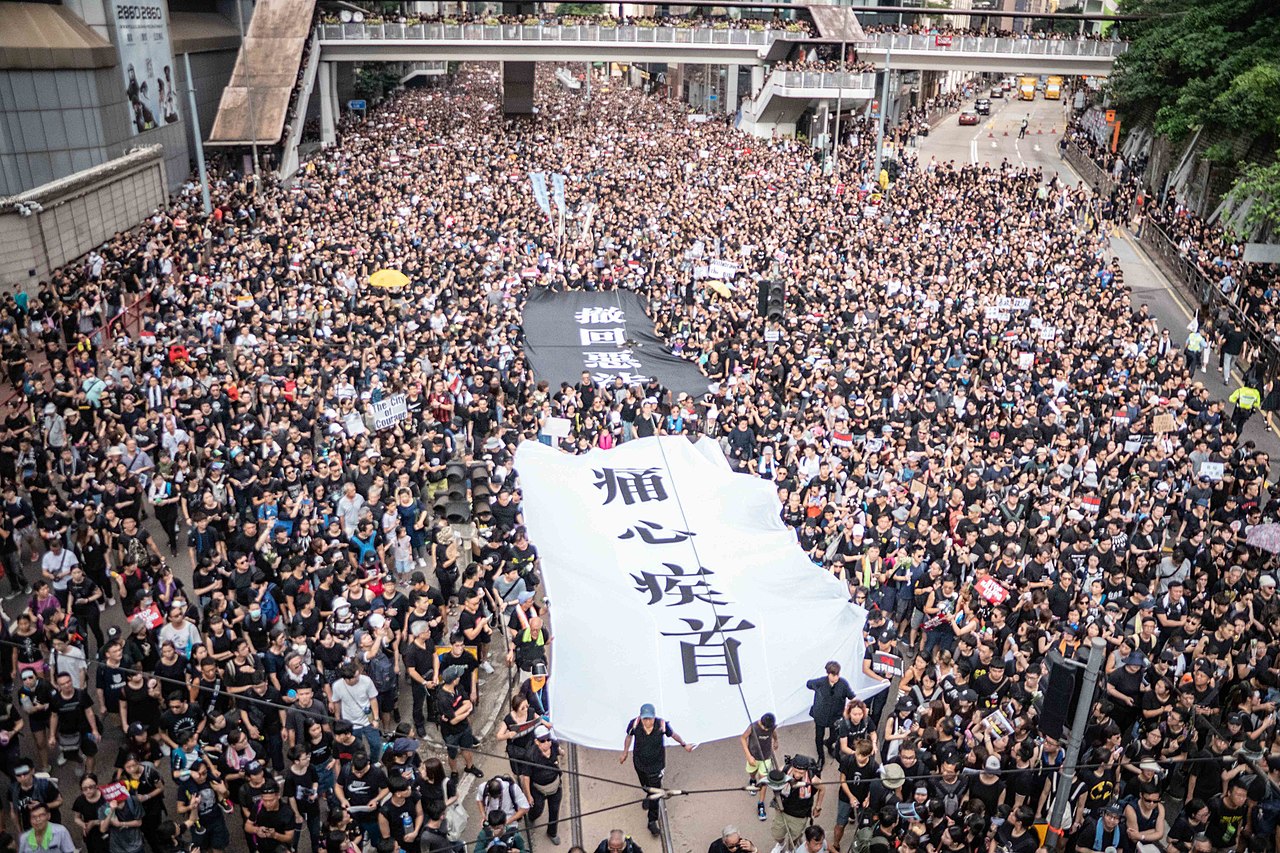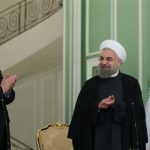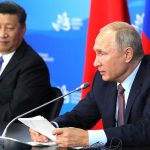by Rajan Menon
Hong Kong’s intrepid demonstrators don’t lack for American admirers. The op-ed pages of our most influential newspapers, the statements emanating from Congress, and the comments of former senior foreign policy officials attest to that.
Now, there is certainly a great deal to admire. Thousands of people in this tiny territory of seven million people have stood firm for democratic values even as they face the world’s second most powerful country, China, which has over a billion people—and formidable firepower besides.
Moreover, despite the long odds, there’s no sign that the rallies, which started nearly four months ago, are sputtering. The demonstrations organized on October 1 to coincide with Beijing’s commemoration of the 70th anniversary of the People’s Republic of China drew more than 10,000 people. The clashes between protestors and the police turned violent, as has happened on previous occasions, and some protestors trampled pictures of Chinese president Xi Jinping. More ominously, for the first time a protestor was shot in the chest by live fire from a police officer’s weapon.
Democracy and Autonomy
The spark that set off the 2019 anti-government rallies in early June might seem like a technicality: proposed legislative amendments to enable the extradition Hong Kong of people wanted for crimes in other countries, including China, with which Hong Kong doesn’t have an extradition treaty.
The impetus for the bill was the case of a Hong Kong man accused by Taiwanese authorities of murdering his girlfriend while the pair were visiting Taiwan. But the widespread opposition to the legislation stemmed from the fear that its wider sweep would authorize the extradition of Hong Kongers to China, where they would face rough justice, an entirely understandable and legitimate fear given the nature of the Chinese judicial system.
Both Carrie Lam, Hong Kong’s elected “Chief Executive” since 2017, and Beijing likely expected that the street rallies would soon fizzle—that an extradition bill alone couldn’t possibly fuel a prolonged anti-government mass movement. That didn’t happen, however, because opposition to the legislation, fervent though it is, is not the sole, nor perhaps even the main, source of Hong Kongers’ anger. Their disaffection has a much longer history and deeper roots.
The 1984 British-China Joint Declaration, which set the stage for Hong Kong’s return to China, included provisions to secure its political and social autonomy. The handover, formalized in 1997, ended 150 years of British rule and was based on a “one country, two systems” formula.
Since then, however, China’s leaders have repeatedly tightened their grip on Hong Kong’s politics.
To the demonstrators, the extradition bill was merely the latest example of this. It would have enabled the Chief Executive to decide extradition requests without consulting Hong Kong’s Legislative Council. The current rallies are, in this respect, comparable to the 2014 mass protests—the “umbrella revolution”—which also arose from anger over Beijing’s gambits to erode Hong Kong’s democracy, specifically the refusal to countenance direct elections.
This explains why Lam’s decision to withdraw the bill in early September has not mollified the protestors. In fact they have additional demands: an independent inquiry into police brutality, amnesty for all protestors, a commitment to not categorize the demonstrations as “riots,” and universal suffrage, meaning a Legislative Council (LegCo) and Chief Executive directly elected by voters, not through the existing process that enables China to shape political outcomes—especially given that only half of the LegCo’s members are chosen by direct vote. China’s leaders will never agree to this last condition because it would, in effect, mean forfeiting control over Hong Kong’s political trajectory. The other demands can be finessed in some fashion.
For now, Beijing appears to be waiting out the protestors and hoping that their support among the Hong Kong public will dry up, especially if they continue to attack the police with petrol bombs and projectiles, disrupt transportation nodes (the airport and the subway system), and storm government buildings.
Economic and Military Factors
Beijing’s long game may not work, however, because the protests aren’t just about democracy. They spring from longstanding economic grievances for which there are no quick fixes. The gap between the average cost of dwellings and average income is much greater in Hong Kong than in other pricey cities, including London and New York. Hong Kongers pay more than New Yorkers do in rent—and get far less living space in return. Rents and housing prices have soared. The South China Morning Post reports that 50 percent of Hong Kong’s apartments rent for 70 percent of its average household income, and that the median selling price of apartments exceeds gross median household income by a factor of 18. The average price for a modest new home? A whopping $1.2 million.
On top of that, income inequality has increased to a level not seen in nearly 50 years. Low-income Hong Kongers struggle to make ends meet, as do many of Hong Kong’s elderly, and a fifth of the population battles poverty—all unsurprising considering that Hong Kong ranks as one the three most expensive cities in the world (Paris and Singapore complete the trio). The educational system, wedded to rote learning geared toward test taking, doesn’t prepare Hong Kong’s young people for the modern-day job market—or position them to command good salaries that open the door to a middle class lifestyle.
As Hong Kong’s drama unfolds, Beijing watches warily, hoping that Lam’s government will regain control, mulling its choices if it does not, issuing warnings that it won’t tolerate chaos indefinitely, linking the rallies to American machinations, even massing troops and riot police across the water in Shenzhen, and staging drills. Some of the rhetoric emanating from Beijing sounds ominous. One statement, issued in August, denounced the protestors as “criminals,” adding, “don’t ever misjudge the situation and mistake our restraint for weakness.” Another verbal salvo, fired this month, was even more menacing: “The end is coming for those attempting to disrupt Hong Kong and antagonize China.”
Beijing has also reportedly increased the number of Chinese troops deployed in Hong Kong to between 10,000 and 12,000, compared to 3,000-5,000 when it began beefing up its military presence at the end of August.
Beijing’s Point of View
Could this all be bluster aimed at intimidating the demonstrators? Perhaps. China couldn’t possibly be eager to stage an invasion, step into what could turn out to be a quagmire, and provoke condemnation from the West. But would Beijing really use force if demonstrations become more violent and the Hong Kong government seems incapable of regaining control of the streets? No one knows—and no one should be eager to find out.
Meanwhile, as Hong Kong’s upheaval continues, influential U.S. politicians—including Nancy Pelosi, Lindsey Graham, Mitch McConnell, and Marco Rubio—have called on the Trump administration to get tough with China so as to deter Beijing from using force. And they are not alone in supporting the protestors. Many American hearts are with the Hong Kongers who have mustered the courage to take to the street. That’s understandable.
But pundits, politicians, and former officials who insist on measures that will get Beijing’s attention vastly overestimate the U.S. government’s influence on a matter of such vital importance to the Chinese leadership. Moreover, they fail to explain what precisely the U.S. government can do, beyond expressing outrage, if the Chinese government launches a violent crackdown, as it did in Tiananmen Square in 1989.
That could well happen. Hong Kong’s turmoil presents China’s leaders with a colossal challenge, and at a particularly difficult time. Even though a 6.2 percent growth rate (in the second quarter of this year) is stellar by global standards, the Chinese economy has started slowing down. The current pace is its slowest in four decades. President Xi Jinping and China’s other top leaders may well fear that economic discontent could spawn political protests at home that are inspired by the Hong Kong rallies.
Then there’s Chinese nationalism’s role in shaping Beijing’s reaction to Hong Kong’s turmoil. Though some experts question the extent to which nationalism has grown in China, this much is clear: it has long since eclipsed Marxism-Maoism as the Chinese state’s legitimating ideology. Chinese nationalism is not merely something mobilized from above. Its wider public appeal is apparent in Chinese social media, even if not all manifestations of it support the government. The upshot is that if China’s leaders appear to be caving to U.S. pressure on Hong Kong, they risk looking feckless at home, at a time when Donald Trump has been using tariff hikes and contemplating restrictions on Chinese investment in the United States in order to squeeze trade concessions from Beijing.
China’s leaders aren’t champing at the bit to put down the protests. But if they do decide to move, they will have weighed the economic and political costs China will have to bear and will be prepared to spill blood. Furthermore, they will act based on the understanding that geography and the local balance of military power overwhelmingly favor China and will therefore be confident that no country, not even the United States, will dare intervene in defense of Hong Kong because that would involve a military clash with China.
For their part, the protestors are counting on U.S. support and actively courting it, which is why they have been waving the American flag and singing the U.S. national anthem. But U.S. pundits and politicians who, seeing such scenes, demand that Washington warn China to eschew force risk giving the demonstrators false hopes. The cold reality is that if Beijing does unleash its police and troops, the protestors will be left standing alone, just as the Hungarians were in 1956 and the Czechs in 1968.
The demonstrators will pay a terrible price if Beijing launches a crackdown and they resist—a scenario that’s quite likely. Those in the United States who have been cheering them on from the sidelines and calling on Washington to play hardball with Beijing will get on with their comfortable lives, perhaps after congratulating themselves for having spoken out in defense of hallowed principles.
But talk is cheap. The more the crisis in Hong Kong turns into a test of wills between China and the United States, the greater the likelihood that the situation on Hong Kong’s streets will go from bad to terrible. None of us should want that outcome.
Rajan Menon, Anne and Bernard Spitzer Professor of International Relations at the City College of New York, is a Senior Research Scholar at the Saltzman Institute of War and Peace Studies, Columbia University. He has written for the FT, the New York Times, the Washington Post, the LA Times, the Boston Globe, Foreign Affairs, Newsweek, and other publications.






What’s amazing with the human nature is that the youngster in Hong Kong never, but never, rose to ‘rebel’ against the British rule in the time of the colony. Now, remember that at that time no one native was part of the higher hierarchy at the administration level, all of them nominated directly from London… and, if the native had some work there, in the offices of the colonial administration, it was for services and they were never allowed to speak Cantonese… And, nowadays, most of those youngsters live in ‘cages’, the owner of which are not the ‘awful mainlanders’ but their brethren, extremely rich, natives from Hong Kong.